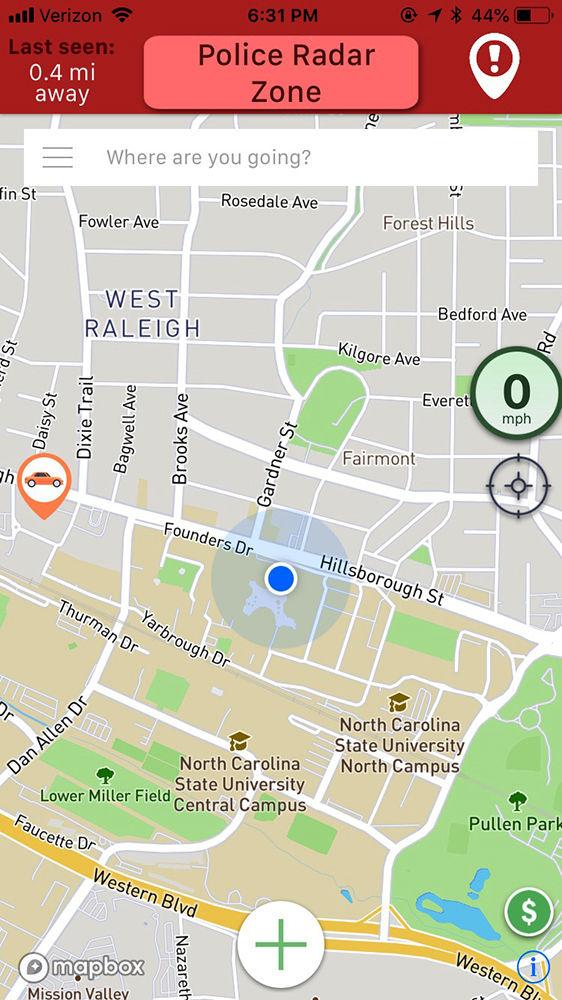
Contributed by Logan Greer
Copdrop is a recently released navigation app created by NC State graduate Logan Greer. The app provides directions and road conditions for drivers while also alerting them of police cars on nearby.
A recent NC State graduate has released a free navigation iPhone app that not only gives users directions, but also has the ability to alert the user of police radars and obstacles while driving.
Currently sitting at No. 16 in the free navigation section of the iPhone app store, Copdrop was created by Logan Greer, who graduated from NC State last December with a degree in mechanical engineering.
“All throughout college I wasn’t sure I wanted to join the corporate climb,” Greer said. “A couple weeks before I graduated I made the decision to spend a month trying to start this off and it was intimidating seeing all my peers confirmed with jobs, but I had a dream that I could avoid that and I’m currently trying my best to make it happen.”
Copdrop utilizes drivers who have radar detectors in their cars and extends their use to all users. The app uses the iPhone’s audio processing to detect and alert users of the presence of a police car nearby while driving. All users who connect their radar detector to the app are entered in a weekly drawing, where they can win a cash prize.
Copdrop also provides turn-by-turn navigation in addition to notifying drivers of a variety of different road conditions.
“You can add road events as pins to the map, so traffic, potholes, accidents, things of that nature and police that you see,” Greer said.
The inspiration for Copdrop came from personal experience after Greer was arrested a couple of years ago for a driving violation.
“I was arrested two years ago and in my opinion it was unjust and some of my rights were violated,” Greer said. “I’ve always had a strong aversion to authority so I wanted to empower people to reclaim their rights.”
Greer said working by himself was a challenge, but credits NC State for the tools it gave him to succeed.
“[NC State] taught me MatLab, especially Dynamics II, I learned how to analyze frequency domain of audio signals,” Greer said. “So the technical background from my mechanical engineering curriculum showed me the way to do the technical aspect of the app.”
Andrew Goncharov, a second-year studying chemical engineering, said he loves the affordability of Copdrop and the other benefits it provides for students.
“It relieves a lot of stress, college students already have so much to deal with,” Goncharov said. “You don’t have to buy an expensive radar detector, so that also helps college students because they’re broke, like me.”
Hoping to create a community feel for the app to bring people together and communicate, Greer is looking forward to seeing what the future of the app holds.
“As a community, as a college, if everyone should adopt something like this it would just feel empowering to be able to have control of your surroundings,” Greer said. “And as a community to look on the map and seeing everyone contributing makes you feel connected.”
Released on March 28, Copdrop has since gained 10,000 new users. Utilizing the idea of a network externality, the more people that use the app, the more useful it becomes.
“Everybody has got a place to be and everybody uses traffic apps, but the one thing that slows you down is being pulled over,” said Trey Broome, a second-year studying business administration.
Having recently partnered with Whistler Radar Detectors, Greer hopes to increase the user base through partnerships and by extending out to the Android market as well.
“The next step is porting to Android, refactoring the current code base and increasing users with more advertising and talking to them on how to improve the platform,” Greer said.
iPhone owners interested in downloading Copdrop can visit the Apple App Store.